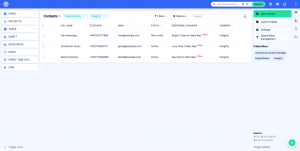Custom Software
In today’s competitive business environment, it is vital to have robust software solutions that enable your team to execute effectively and scale with growth. Whether you are looking for an e-commerce solution, a mobile application, or a data management system that allows you to leverage your data assets more effectively, custom software development is an asset that will pay off in the long run.
Packaged software is a tempting option that may save your company some upfront costs. However, if the product fails to meet your business needs or is not capable of scaling with your growth, you will ultimately lose all that money you initially saved. Custom software, on the other hand, is designed to meet your specific challenges and is easily altered or augmented based on changing requirements.
One of the best ways to determine if a Custom software development firm is worth the investment is by checking out their reviews on a third-party website like Clutch. Clutch’s review verification process seeks to validate a buyer’s relationship with a service provider, their project scope, and the outcomes of the collaboration. Reviews from verified buyers provide a more accurate picture of a service provider’s work and allow buyers to make confident decisions about which companies are the right fit for their projects.

Is Custom Software an Asset?
When choosing a custom software development firm, it is important to consider the length of time that they will be working on your project and their ability to provide ongoing support. It is also a good idea to find a partner that has experience with your industry and a history of successful software development projects. You can do this by asking for referrals from trusted colleagues or doing a search online focusing on a firm’s industry focus and projects size.
Once you have identified a potential software development partner, start by clearly defining your current and future processes with them. This should include identifying your key objectives and success criteria as well as any potential pain points that the software can help to alleviate. For example, if you are struggling with customer service issues, an efficient e-commerce platform can help you provide a better experience to customers.
The next step is to identify a list of features that your software should contain. This will help your developer create a unique offering and differentiate your company within your market. For instance, a digital concierge or customer dashboard can allow for more visibility into the client journey and build a stronger bond between your company and consumers/clients.
Finally, your custom software should be designed with your budget in mind. A good developer will understand that you are the owner of the product and will work with you to design a solution that is within your price range. They will also be able to suggest solutions that will add value without increasing your cost, such as using APIs to integrate with existing systems or automating manual tasks. This will reduce costs and improve the overall user experience.